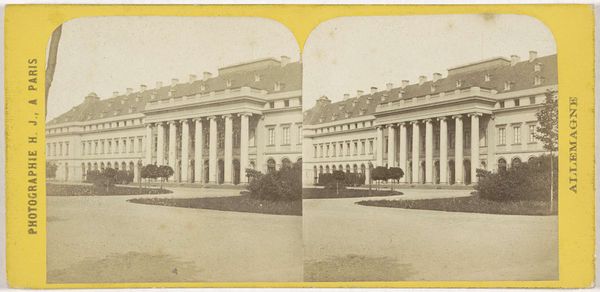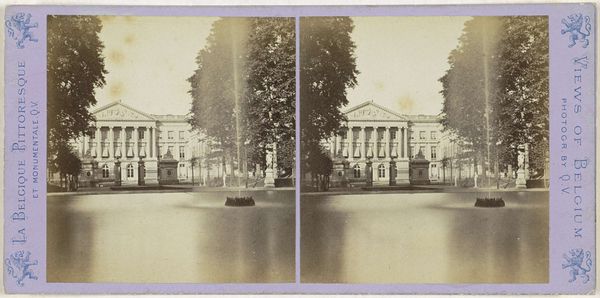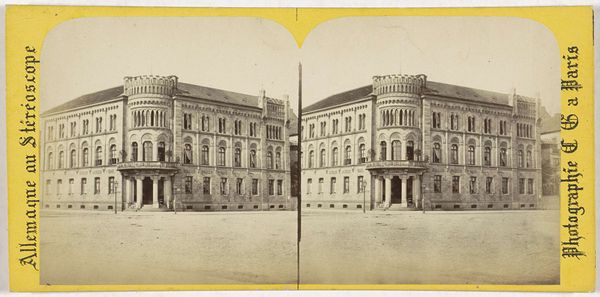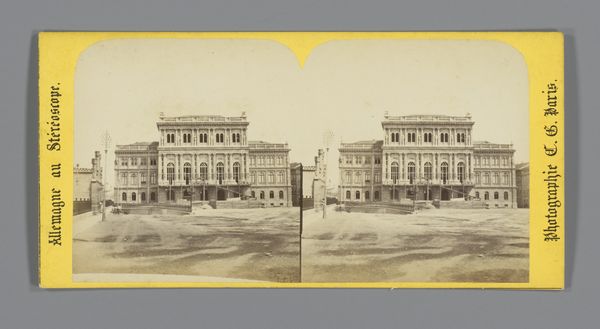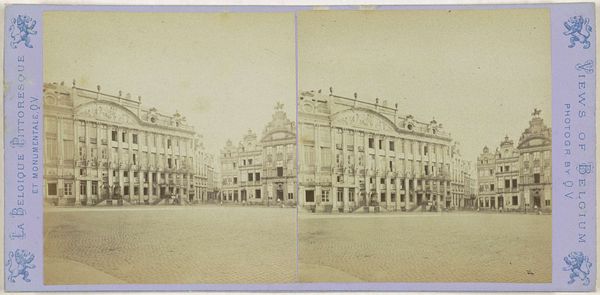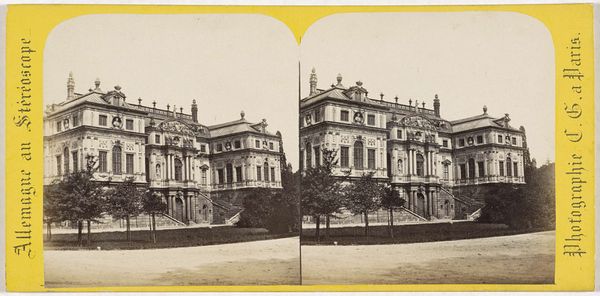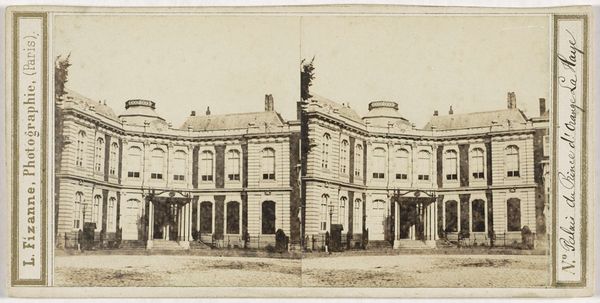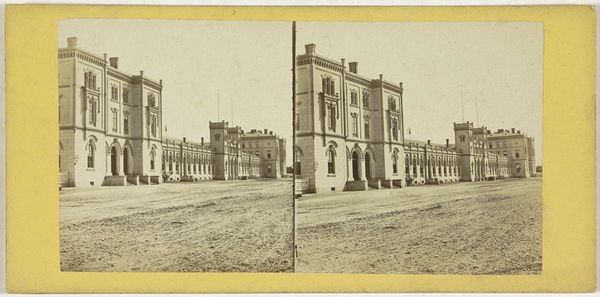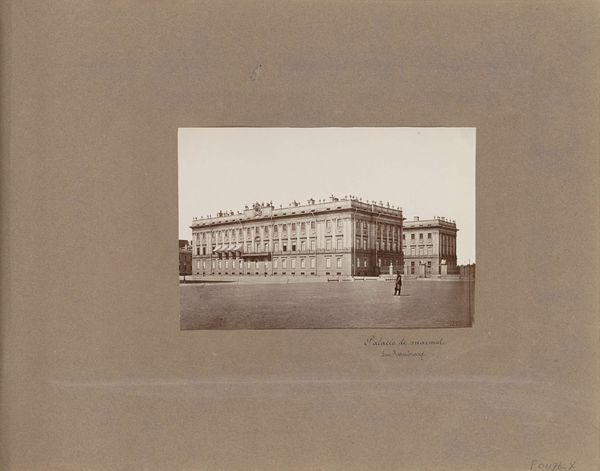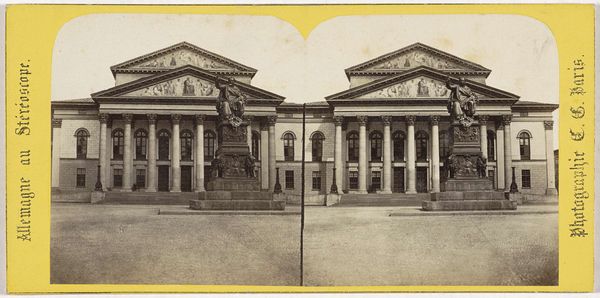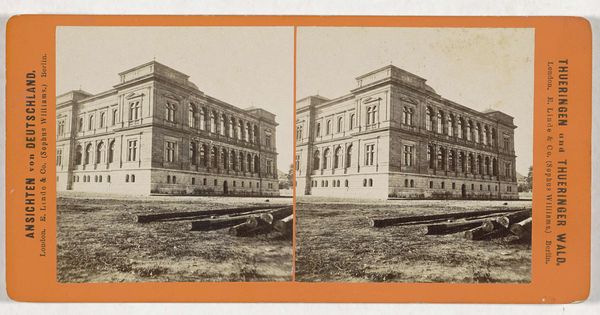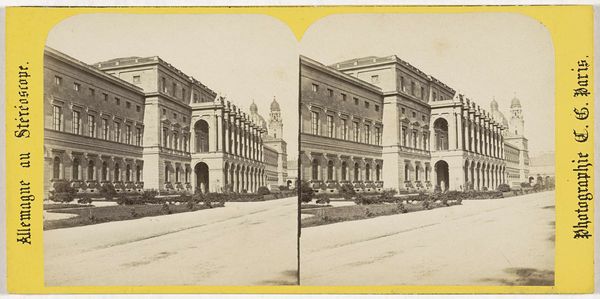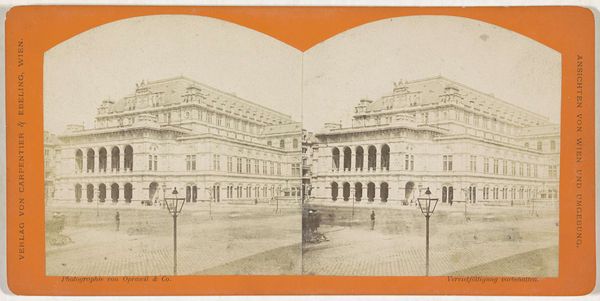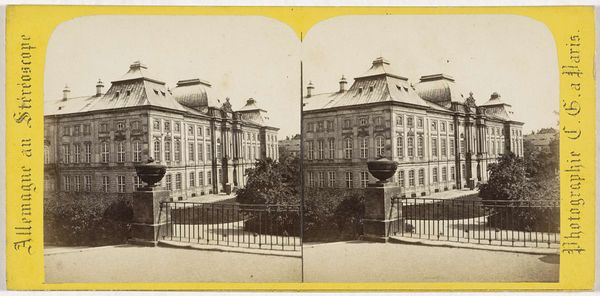
Museum voor beeldende kunst aan de Augustusplatz in Leipzig, Duitsland 1860 - 1870
0:00
0:00
photography, site-specific, gelatin-silver-print
#
landscape
#
photography
#
ancient-mediterranean
#
site-specific
#
gelatin-silver-print
#
realism
Dimensions: height 75 mm, width 150 mm
Copyright: Rijks Museum: Open Domain
Curator: This gelatine-silver print captures the Museum voor beeldende kunst aan de Augustusplatz in Leipzig, Germany. Attributed to Charles Gaudin, it dates somewhere between 1860 and 1870. Editor: My first impression is this stark stillness. The empty plaza seems to amplify the museum's grand architectural statement. There's an austerity here, almost a silence, that really resonates. Curator: That emptiness does play a vital role, doesn't it? In the mid-19th century, the notion of "public" space was still being quite heavily contested. It speaks to this kind of imposed order over civic life, doesn’t it? A museum itself, as an institution, is of course implicated in all of that. Editor: Absolutely. Think of museums as spaces of knowledge production, shaping narratives, but also implicitly asserting control over who accesses and interprets history. This architecture speaks volumes—those neoclassical lines almost scream exclusivity. But, the rise of photography at the time democratized images and allowed anyone to have images in their homes. Curator: So true, the photograph is itself democratizing even as it captures such a rigidly hierarchical architectural structure. And there's also something fascinating about the landscape genre in photography, especially around this time period. Think of its use in colonial documentation, urban planning... This photo seems so self-aware, somehow both grand and unsettling in its quiet composure. Editor: Considering the social context, you see the architecture serving to separate elites, emphasizing social distinctions while it tries to unify "the public". So a photograph such as this creates questions, it asks us to observe, deconstruct. Curator: Right, it shows more than it tells. I like how the photographer positioned himself: a wide shot emphasizing not the art within, but the container itself, sitting in the middle of nothing, for everyone to see, and contemplate. The perfect metaphor! Editor: The perfect seed, planted in our minds and inviting conversations, not only about architecture and photography but about our complex historical narrative as well. Curator: Yes, I'm off to look closer at some old photographs now. Editor: Me too. I will never look at a civic photograph in quite the same way now.
Comments
No comments
Be the first to comment and join the conversation on the ultimate creative platform.
